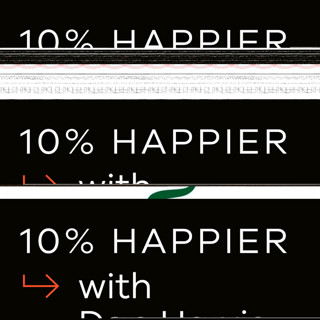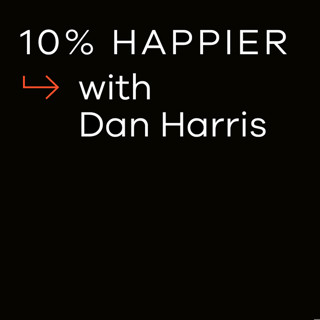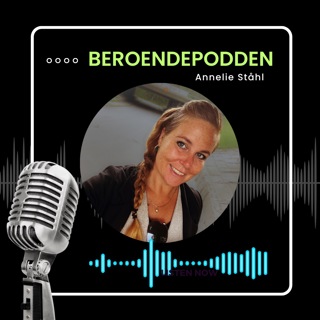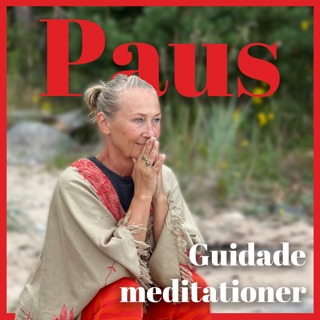
Your Anxiety Questions, Answered | Judson Brewer
New episodes come out every Monday, Wednesday, and Friday for free, with 1-week early access for Wondery+ subscribers. --- The subject of anxiety never seems to lose its relevance. In this special episode we answer listener voicemails with one of the world’s leading experts on anxiety. Dr. Jud Brewer is the Chief Medical Officer at Sharecare and the Director of Research and Innovation at Brown University’s Mindfulness Center. He is also the New York Times best-selling author of Unwinding Anxiety: New Science Shows How to Break the Cycles of Worry and Fear to Heal Your Mind and an expert in the field of habit change and the science of self-mastery. In this episode we talk about: The current levels of anxiety in our culture Why fear and planning can be helpful, but worrying is not The role of curiosity and kindness in short circuiting anxiety How to differentiate between anxiety and excitement Whether we can try too hard to treat our anxiety And why as a society we are moving away from distress tolerance Full Shownotes: https://www.tenpercent.com/podcast-episode/judson-brewer-530
28 Nov 20221h 7min

The Surprising Power of “Healthy Embarrassment” | Koshin Paley Ellison
New episodes come out every Monday, Wednesday, and Friday for free, with 1-week early access for Wondery+ subscribers. --- We’ve all got parts of our personality or our past that we’re ashamed of. We might refer to these parts of ourselves as our demons, our baggage, or our secrets; no one is immune. So, how do you want to deal with this situation? Stay coiled in shame and denial? That only makes the demons stronger. An alternative, per my guest Koshin Paley Ellison, is to approach your stuff with “healthy embarrassment.” That allows you to work more skillfully with your baggage so that it doesn’t own you. And once you’re cooler with yourself, that can improve your relationships with other people, which is probably the most important variable for your happiness. And healthy embarrassment is just one of many extremely useful things we are going to talk about today. Koshin Paley Ellison is an author, Zen teacher, Jungian psychotherapist, and Certified Chaplaincy Educator. He is the co-founder of the New York Zen Center for Contemplative Care, an amazing place which, among other things, trains people to be volunteers in hospice centers. Koshin is the author of a new book called Untangled: Walking the Eightfold Path to Clarity, Courage, and Compassion, which centers on a classic Buddhist list called The Eightfold Path, the Buddha’s recipe for enlightenment or, as Koshin puts it, “the most awesome combo platter.” In this episode we talk about: What is The Eightfold Path and how it fits into another Buddhist list, The Four Noble Truths How to use the list to do life better The danger of perfectionism in putting the list to use in your life How to bridge the gap between what we say we care about and what we’re actually doing with our lives How sitting with your pain can lead to freedom The utility and pitfalls of gossip How we can look at the idea of “killing” in many different ways, including how one can “kill a moment” or “the energy in a room” How the concept of “right effort” can help us find the balance between not doing enough and overworking ourselves How being uncomfortable is a sign of real engagement with our practice And Koshin’s addition of the concept of “mystery” as another aspect of the eightfold path Full Shownotes: www.tenpercent.com/podcast-episode/koshin-paley-ellison-528
23 Nov 202251min

How To Handle Dread | Saleem Reshamwala
New episodes come out every Monday, Wednesday, and Friday for free, with 1-week early access for Wondery+ subscribers. --- Today we explore the entire dread spectrum with Saleem Reshamwala, who took a deep dive on this very common, very uncomfortable emotion. What is dread, exactly? What evolutionary purpose does it serve? Most importantly, how do we deal with it? What are the antidotes? Reshamwala has worked for The New York Times, PBS, and also TED, where he hosts a podcast called Far Flung. He is also the host of More Than A Feeling, another podcast here at Ten Percent Happier. Saleem and his team recently launched something called The Dread Project - we shared their first episode kicking off the series last week. It’s a five-day series that investigates dread. Each day of the challenge, listeners tackle dread in a different way. You can sign up for The Dread Project at dreadproject.com. In this episode we talk about: Dread-management techniques, including: journaling, drawing, and welcoming your dread to the party inside your head How to face dread when it comes to climate change And the biggest dread of all— death Full Shownotes: https://www.tenpercent.com/podcast-episode/saleem-reshamwala-527
21 Nov 202257min

A Masterclass in Handling Yourself When Things Suck | Tsoknyi Rinpoche and Daniel Goleman
This episode is for anyone who has ever had a tough or tricky moment. In other words, everyone who is currently drawing breath on planet earth right now. Today’s guests are powerhouse duo Tsoknyi Rinpoche and Daniel Goleman. Tsoknyi Rinpoche is one of the greatest living Tibetan masters who has a whole toolbox of techniques for dealing with difficult moments, habitual patterns, and common meditation obstacles. He’ll be in conversation with Daniel Goleman, a trained scientist and science writer best known for his landmark book, Emotional Intelligence: Why It Can Matter More Than IQ. Together, they have just written a book called Why We Meditate: The Science and Practice of Clarity and Compassion. This is the fourth and final installment of our series called, The Art and Science of Keeping Your Sh*t Together. In each episode we bring together a meditative adept or Buddhist scholar and a respected scientist. The idea is to give you the best of both worlds to arm you with both modern and ancient tools for regulating your emotions. In this episode we talk about: The single word that Rinpoche believes captures the most challenging aspect of modern life Two of the biggest obstacles for meditators What Rinpoche calls the “drop it” practice Rinpoche’s term, “beautiful monsters” The four steps of the “handshake” practice, which is meant for meeting difficult emotions and being OK with them Why reasoning with your feelings doesn’t work How to experience a fundamental OK-ness independent of external conditions A personal story from Rinpoche about being with one of his own difficult habits What Rinpoche calls the “three speed limits” And, “belly breathing” Full Shownotes: https://www.tenpercent.com/podcast-episode/tsoknyi-rinpoche-daniel-goleman-523
16 Nov 202256min

What Science and Buddhism Say About How to Regulate Your Own Nervous System | Deb Dana & Kaira Jewel Lingo
Is it possible to learn to spot which state your nervous system is in and move from suboptimal states to much better ones? The subject of how to work with your own nervous system is called Polyvagal Theory and today’s guests Deb Dana & Kaira Jewel Lingo will give us a primer on what that exactly means. They will also talk about how our nervous systems are connected to the nervous systems of other people, and how we can learn to co-regulate our systems for the betterment of others. Deb Dana is a Licensed Clinical Social Worker, who is a clinician, consultant and author specializing in complex trauma. Her work is focused on using the lens of Polyvagal Theory to understand and resolve the impact of trauma, and creating ways of working that honor the role of the autonomic nervous system. She has written several books, including Anchored: How to Befriend Your Nervous System Using Polyvagal Theory. Kaira Jewel Lingo is a Dharma teacher with a lifelong interest in spirituality and social justice. After living as an ordained nun for 15 years in Thich Nhat Hanh’s monastic community, Kaira Jewel now teaches internationally in the Zen lineage and the Vipassana tradition, as well as in secular mindfulness, with a focus on activists, Black, Indigenous, and People of Color, artists, educators, families, and youth. She is author of We Were Made for These Times: Ten Lessons for Moving Through Change, Loss, and Disruption. This is the third installment of our series called, The Art and Science of Keeping Your Sh*t Together. In each episode we bring together a meditative adept or Buddhist scholar and a respected scientist. The idea is to give you the best of both worlds to arm you with both modern and ancient tools for regulating your emotions. In this episode we talk about: The basics of Polyvagal Theory A fascinating and easily graspable concept from Buddhist psychology called, “store consciousness” The interconnectedness of our nervous systems and the responsibility that creates for all of us How to handle being annoyed What happens when we beat ourselves up with “shoulds,” and how to stop doing that The value of simply knowing, in the moments when you’re stuck, that those moments are impermanent How to allow your suffering to inform your life The value of “micro-moments” Two ways of caring for painful states without suppressing them And the power of action and service in overcoming anxiety Full Shownotes: www.tenpercent.com/podcast-episode/deb-dana-kaira-jewel-lingo-522
14 Nov 20221h 11min

Can You Really Trust Your Feelings? | Lisa Feldman Barrett & John Dunne
A common idea in the west is that our feelings or emotions should be viewed with suspicion, superseded or overridden by rational thought, and that your mind is a battleground between emotions and rationality. But on the show today, guests Lisa Feldman Barrett and John Dunne are going to offer a very compelling science backed argument that disputes the notion that thinking and feeling are distinct. Furthermore, they argue that understanding how emotions are actually made can be a life or death matter. Lisa Feldman Barrett is a University Distinguished Professor of Psychology at Northeastern University with appointments at the Massachusetts General Hospital and Harvard Medical School. Dr. Barrett is among the top 1% most-cited scientists, having published over 270 peer-reviewed scientific papers. She has written several books, including How Emotions Are Made: The Secret Life of the Brain, and Seven And A Half Lessons About The Brain. Her TED talk has been viewed more than 6.5 million times. John Dunne holds the Distinguished Chair in Contemplative Humanities at the Center for Healthy Minds of the University of Wisconsin-Madison. His work focuses on Buddhist philosophy and contemplative practice, especially in dialog with Cognitive Science and Psychology. He earned his PhD from Harvard. This is part two in a series we’re calling The Art and Science of Keeping Your Sh*t Together. In each episode we bring together a meditative adept or Buddhist scholar and a respected scientist. The idea is to give you the best of both worlds to arm you with both modern and ancient tools for regulating your emotions. In this episode we talk about: Lisa’s scientific definition of emotions John’s Buddhist contention that emotions, as a category, do not exist in Buddhism The difference between suffering and discomfort What we can do to master our emotions including understanding what Lisa terms as our “body budget” Becoming more emotionally intelligent Mastering our feelings in the moment Whether or not pain is an emotion and how it works How and why to be present in the here and now The upside of unpleasant feelings Full Shownotes: https://www.tenpercent.com/podcast-episode/lisa-feldman-barrett-john-dunne-520
9 Nov 202246min

The Art and Science of Keeping Your Sh*t Together | Shinzen Young and James Gross
In western culture, there's been a long held view that our ability to reason should be placed above our emotions. But the hard truth is that our emotions are there and they're non-negotiable— and If you don't know how to work with them, they can own you. The good news is that you can work with them and that there are many systems for doing so. To boot, you can learn a ton by listening to your emotions in the right ways. Today’s guests, Shinzen Young and James Gross will help us understand how to work with our emotions and offer both techniques in modern science and ancient wisdom in order to do so. Gross is the Ernest R. Hilgard Professor of Psychology at Stanford University, where he directs the Stanford Psychophysiology Laboratory. Young is an American mindfulness teacher and neuroscience research consultant. He teaches something called Unified Mindfulness, which you will hear him describe in this conversation. This is part one in a series we’re calling The Art and Science of Keeping Your Sh*t Together. In each episode we bring together a meditative adept or Buddhist scholar and a respected scientist. The idea is to give you the best of both worlds to arm you with both modern and ancient tools for regulating your emotions. In this episode we talk about: James’s “modal model” for understanding what emotions are and how they work James’s five different types of strategies you can use for regulating your emotions Shinzen’s contention that emotions have two sides to them How we can experience emotions with more fulfillment and less suffering via a mindfulness training he calls “focus factors” James’s “process model of emotion regulation” What James believes are the elements that unite science and Buddhism Shinzen’s contention that anyone can experience massive benefits of mindfulness training if their meditation practice has four key components Full Shownotes: https://www.tenpercent.com/podcast-episode/shinzen-young-james-gross-519
7 Nov 20221h 2min

This Thanksgiving, How to Make Gratitude More Than a Platitude | DaRa Williams
New episodes come out every Monday, Wednesday, and Friday for free, with early access for Wondery+ subscribers. --- Can gratitude be more than just a platitude? Our guest today argues: yes. DaRa Williams is a longtime practitioner and teacher of meditation. She is one of the guiding teachers at Insight Meditation Society, a graduate of the Spirit Rock Insight Meditation Society Teacher Training Program, and also has a clinical mental health private practice in Manhattan. DaRa also says, only semi-facetiously, that she believes gratitude can be considered the fifth Brahma Vihara. In this conversation we talk about: How to start knitting gratitude into your everyday life Whether gratitude is possible when everything sucks How to avoid spiritual bypass The opportunity that suffering brings for happiness How to take our suffering less personally The power of reminding yourself that you are nature And our unconscious fascination with creating difficulty Full Shownotes: https://www.tenpercent.com/podcast-episode/dara-williams-295-rerun
2 Nov 202259min





















